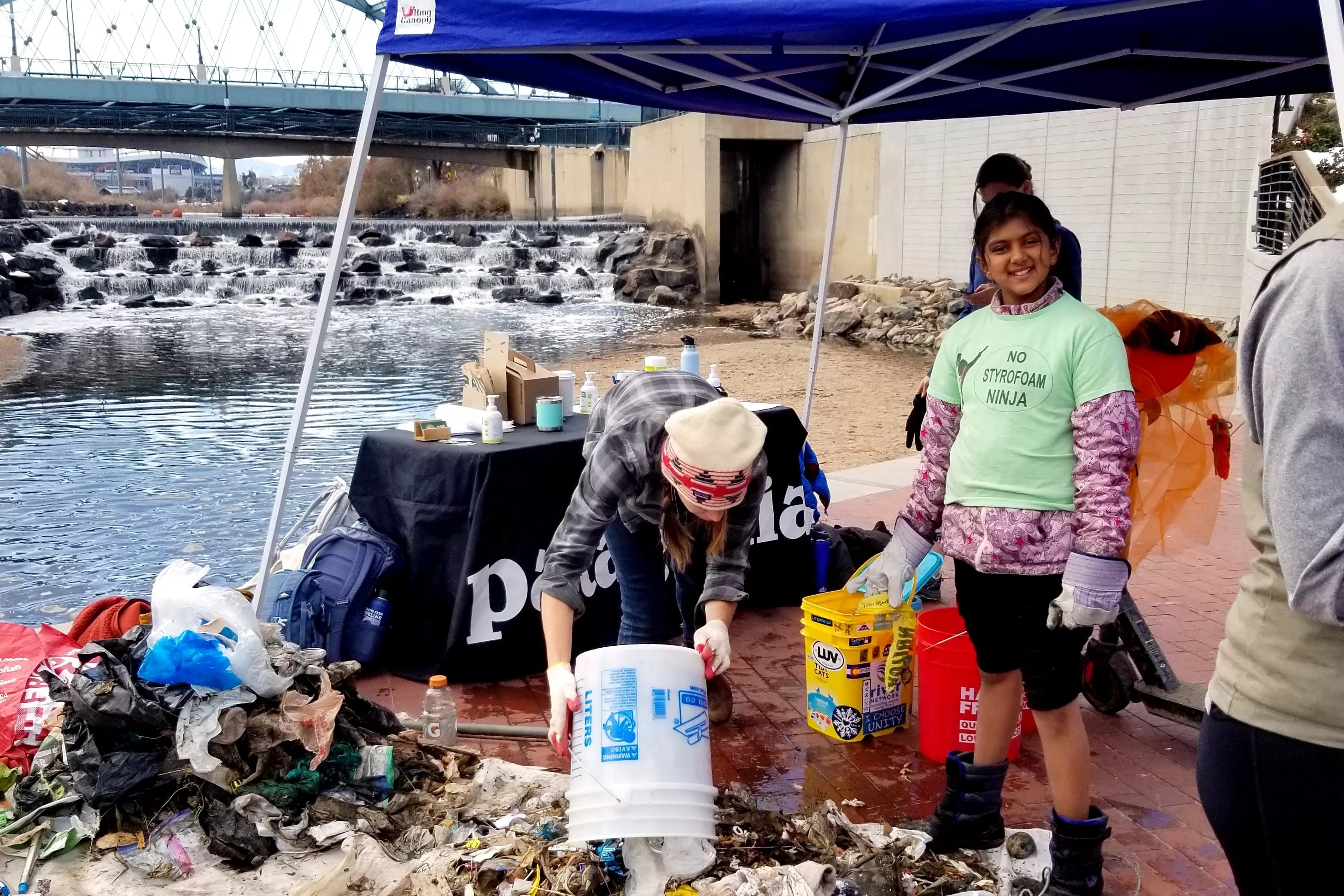
Madhvi Chittoor

Audio By Carbonatix
Colorado’s ban of single-use plastic bags and styrofoam containers started Monday, January 1, but Madhvi Chittoor has been pushing it for seven years – since she was five years old.
An Arvada eighth-grader, Chittoor is also an international climate activist. At twelve, she is the youngest child adviser on the United Nations Committee on the Rights of the Child’s General Comment No. 26, which affirmed children’s rights to a clean and healthy environment in August.
Chittoor became interested in the environment in 2016, when her family watched the documentary Midway: A Plastic Island, about a remote Pacific island overrun with trash washed up from around the globe. Seeing footage of the island’s seabirds and fish swallowing plastic, she says she knew something needed to change – and she couldn’t rely on adults to fix it themselves.
“Children are going to be the future of this world. This is to protect the rights of children and future generations,” Chittoor says today. “Adults are just going on with life as business as usual. Children need to convince adults, businesses and the government to take action.”
She’s taken plenty of action since 2016. She’s published the children’s book Is Plastic My Food?, worked with Colorado governors John Hickenlooper and Jared Polis to declare April as Plastic and Styrofoam Pollution Awareness Month, and met with the likes of Vice President Kamala Harris, climate activist Greta Thunberg and U.S. Secretary of Energy Jennifer Granholm.
Chittoor started collecting signatures to get rid of styrofoam lunch trays in her school district in 2018 – a change the district implemented the next year. She then turned her attention to the rest of Colorado, collecting signatures to ban styrofoam containers and single-use plastic bags statewide. She met with business owners, restaurant owners and 35 mayors across Colorado to ask for their support.
In 2019, she presented 3,500 signatures to state legislators, including Senator Lisa Cutter, who sponsored the 2021 bill that prohibits single-use plastic bags in retail stores and styrofoam containers in restaurants starting this year. Cutter says she was already working on the ban when she met Chittoor, but the young activist helped to gather support. Chittoor later inspired Cutter to sponsor another bill to restrict toxic “forever chemicals” in products sold in Colorado, Cutter says.
“Madhvi’s passion and advocacy have been such a boost for my environmental legislation,” Cutter says. “She has a great understanding of environmental issues and is not afraid to push for change. We need more young people to speak out, and I applaud her initiative.”
When the plastic bag and styrofoam container ban was signed into law, Chittoor was invited to the ceremony and given a commemorative bill-signing pen by the governor.

Madhvi Chittoor standing beside state legislators Alex Valdez, Julie Gonzales and Lisa Cutter as Governor Jared Polis signed the ban into law.
Madhvi Chittoor
After seven years of work, Chittoor says she is “really, really thrilled” that the ban is finally taking effect.
“This is a big win for our ecosystem,” Chittoor says. “Just imagine: All the plastic bags and styrofoam which were manufactured since the 1950s still exist in some part of the world, polluting our air, water, soil and now our entire food chain, which impacts our health. It’s a really big problem.”
Plastic bags are difficult to recycle; a lot of energy is required to break them down, and they must be handled separately from other materials, according to the University of Colorado. This means they can’t be put in at-home curbside recycling bins, so most end up in landfills – where they can take over 1,000 years to decompose.
Plastic that breaks down in the environment leaches microplastics into soil and water. Styrofoam can similarly leach chemicals into the food it touches, causing health issues such as cancer and reproductive problems, bill sponsor Representative Alex Valdez told Westword in December. “By banning this awful product, we are helping to ensure the health of all Coloradans, especially young children,” he adds.
With Colorado’s ban now in effect, Chittoor says she’s working toward a global prohibition on “forever chemicals” with her United Nations committee – the state bill she inspired Cutter to run restricting these chemicals passed in 2022. Chittoor also plans to advocate for new regulations on oil and gas development as Colorado begins evaluating the cumulative impacts of those operations.
She wants other kids to get involved, too, and points to her model of signature campaigns and meeting with local politicians as a place to start.
“Be determined and be resilient,” Chittoor says. “Always persevere until the end.”